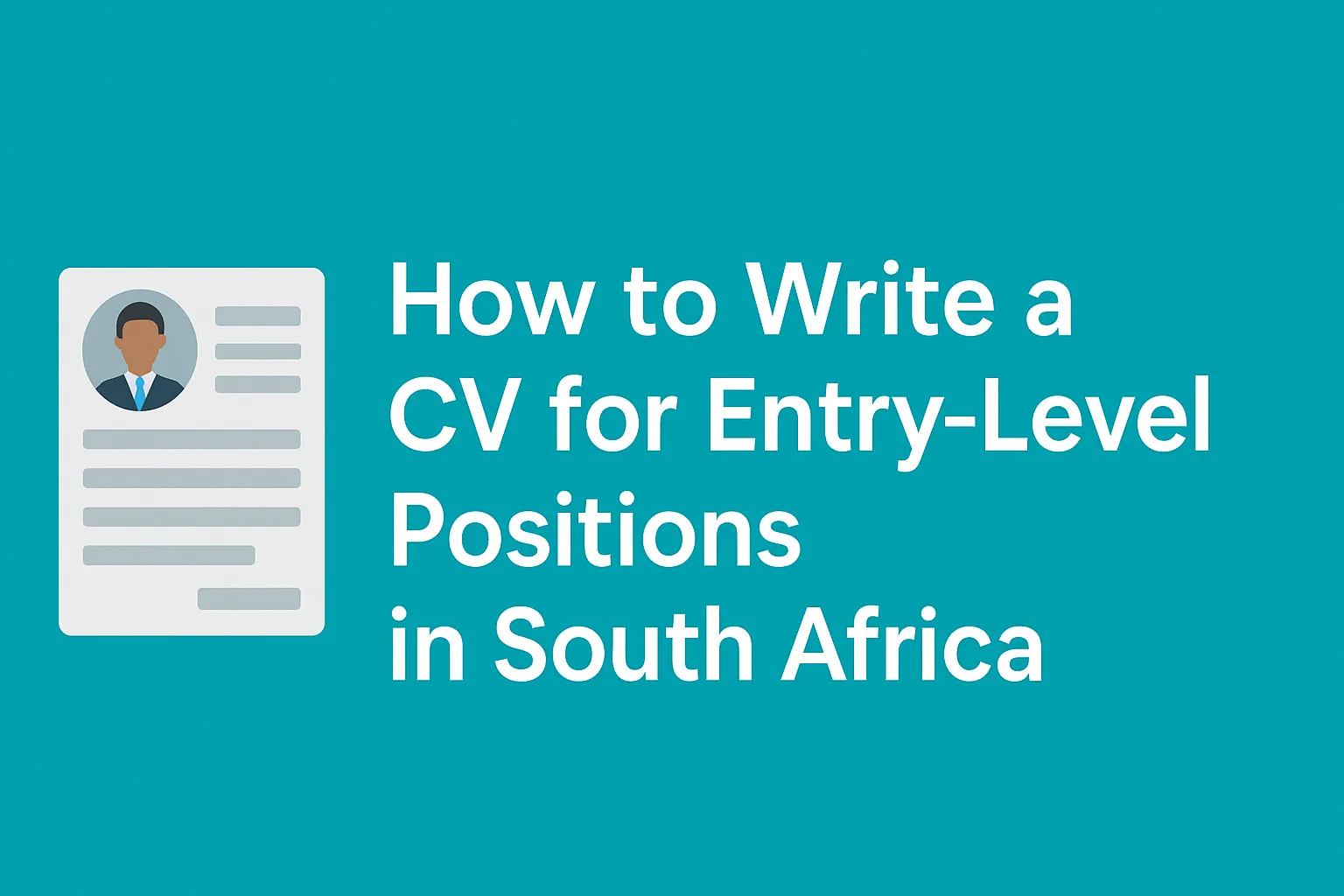How to Write a CV for Entry-Level Positions in South Africa
Creating a professional CV is one of the most important steps when starting your career. If you’re applying for entry-level positions in South Africa, your CV should clearly show your skills, education, and potential, even if you have limited or no work experience. In this guide, we’ll explain how to write a CV that stands out and gets you noticed by employers.
1. What is a CV?
A CV, or Curriculum Vitae, is a document that outlines your background, education, skills, and any experience you may have. It helps employers understand who you are and why you’re a good fit for a job. For entry-level roles, a well-organized CV can make all the difference.
2. Why is a CV Important for Entry-Level Jobs?
Entry-level roles often receive many applications. Your CV is your first impression. A good CV:
- Shows your qualifications and strengths
- Highlights your education and training
- Shows you’re serious and professional
- Helps employers decide to call you for an interview
Even without job experience, your CV can still show your readiness to learn and grow.
3. Basic Structure of an Entry-Level CV
Here is a basic structure to follow:
- Contact Information
- Professional Summary
- Education
- Skills
- Experience (if any)
- Achievements
- References
Let’s break these down.
4. Contact Information
Always start your CV with your personal details at the top:
- Full name
- Phone number
- Email address (use a professional email)
- Location (City, Province)
- LinkedIn profile or portfolio (if available)
Example:
Thabo Mokoena
thabomokoena@gmail.com
083 123 4567
Johannesburg, Gauteng
linkedin.com/in/thabomokoena
5. Professional Summary
This is a short paragraph (2-3 lines) at the top of your CV. It should summarize who you are, your career goal, and what you bring to the job.
Example:
“Motivated and detail-oriented recent graduate with a diploma in Business Administration. Strong communication and teamwork skills. Looking to begin a professional career in a dynamic organization.”
6. Education
List your most recent education first. Include the name of the institution, qualification, and years attended.
Example:
Diploma in Information Technology
Tshwane University of Technology, Pretoria
2021 – 2023
Matric Certificate
Orlando High School, Soweto
2016 – 2020
You can also add key subjects or achievements if they are relevant.
7. Skills
Mention both soft skills (people skills) and hard skills (technical or specific skills). Choose skills that match the job description.
Examples of soft skills:
- Teamwork
- Communication
- Time management
- Problem-solving
Examples of hard skills:
- Microsoft Office (Word, Excel, PowerPoint)
- Social media marketing
- Data entry
- Coding (HTML, CSS, Python)
8. Experience (If Any)
Even if you don’t have formal work experience, you can list:
- Internships
- Volunteer work
- School projects
- Part-time or holiday jobs
Example:
Intern, Admin Assistant
Department of Health, Limpopo
Jan 2023 – March 2023
- Helped with filing and data entry
- Assisted with scheduling meetings
- Answered phones and emails
Volunteer, Youth Sports Program
Local Community Centre, Durban
2022
- Assisted in organizing youth events
- Registered participants and handed out equipment
9. Achievements
Highlight any awards, certificates, or accomplishments that show your dedication or skills.
Examples:
- Top 10 in matric class
- Certificate of Attendance: Digital Skills Workshop by Google
- Debating Club Vice President
10. References
You can add 1–2 references or simply write: “References available on request.” Make sure your references know you are listing them.
Example:
Mr. Dlamini
Lecturer, University of Johannesburg
dlaminim@uj.ac.za
11. Tips to Make Your CV Stand Out
- Keep it 1–2 pages long
- Use a clean, easy-to-read layout
- Save as PDF unless instructed otherwise
- Avoid spelling and grammar errors
- Match your CV to the job ad (use similar keywords)
12. Common Mistakes to Avoid
- Using informal language
- Including unnecessary personal info (e.g., ID number, religion)
- Having no clear structure
- Using an unprofessional email
- Listing fake experiences
13. Tools and Templates
You can use free online tools to create a professional-looking CV:
- Canva (www.canva.com)
- Zety CV Builder (www.zety.com)
- Novoresume (www.novoresume.com)
These tools offer modern templates that are easy to edit.
14. Final Checklist Before Sending
Before you submit your CV, ask yourself:
- Is all the information accurate?
- Is the format clean and consistent?
- Have I used action words (e.g., managed, assisted, created)?
- Does my CV show I’m motivated and willing to learn?
15. Conclusion
Writing a CV for entry-level jobs in South Africa doesn’t have to be stressful. By following a clear format and highlighting your strengths, education, and motivation, you can create a CV that helps you get interviews and launch your career. Always keep your CV updated and tailor it to each job you apply for.
Start small, stay confident, and remember—your first job is just the beginning of your journey.
You may also want to read the articles below for extra income.
How to Make Quick Cash in South Africa
How to Make Money as a Student in South Africa
Side Hustles for Women in South Africa: A Full Guide








